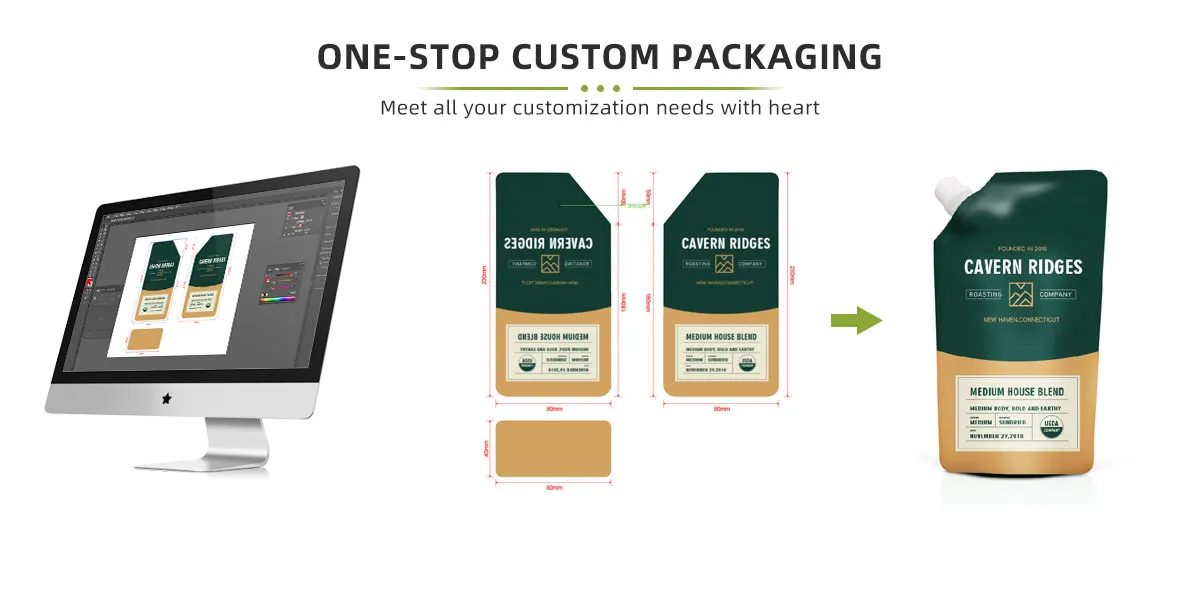Retort bags are specialized flexible packaging designed to withstand high-temperature sterilization (retort processing), making them ideal for preserving a wide variety of shelf-stable foods. Here’s a breakdown of the types of foods that commonly use retort bags and why they’re well-suited for this packaging:
1. Ready-to-Eat Meals
- Examples:
- Curries, stews, rice dishes (e.g., Indian dal, Thai coconut rice).
- Pasta meals (e.g., spaghetti, lasagna).
- Military MREs (Meals Ready-to-Eat).
- Why Retort?
- Sterilization ensures safety without refrigeration.
- Lightweight and portable for convenience (camping, emergencies, quick meals).
2. Pet Food
- Examples:
- Wet dog/cat food (e.g., chunks in gravy, pâtés).
- Treats or supplements.
- Why Retort?
- Preserves freshness and flavor without artificial preservatives.
- Easy-to-serve pouches for portion control.
3. Seafood
- Examples:
- Tuna, salmon, or sardines in oil/brine.
- Pre-cooked shrimp or ready-to-eat seafood meals.
- Why Retort?
- High-heat processing eliminates pathogens while retaining texture.
- Aluminum layers in retort bags block light/oxygen, preventing spoilage.
4. Soups, Sauces, and Broths
- Examples:
- Tomato soup, chicken broth, miso soup.
- Cooking sauces (e.g., curry paste, marinara).
- Why Retort?
- Liquid-friendly design prevents leaks.
- Maintains flavor and viscosity after sterilization.
5. Baby Food
- Examples:
- Pureed fruits/vegetables (e.g., apple, carrot, spinach).
- Blended meals (e.g., chicken and rice).
- Why Retort?
- Ensures microbial safety for infants.
- Squeezable pouches allow mess-free feeding.
6. Ethnic and Specialty Foods
- Examples:
- Japanese curry roux, Mexican mole sauce.
- Coconut milk, pre-cooked beans.
- Why Retort?
- Extends shelf life for global distribution.
- Preserves authentic flavors and textures.
7. Fruits and Vegetables
- Examples:
- Pre-cooked veggies (e.g., lentils, chickpeas).
- Fruit purees or diced fruits in syrup.
- Why Retort?
- Retains color, nutrients, and texture after sterilization.
- No need for refrigeration or additives.
8. Desserts and Snacks
- Examples:
- Rice pudding, custards.
- Pre-cooked grains or legumes.
- Why Retort?
- Enables portable, single-serve portions.
- Maintains moisture and prevents staleness.
Key Advantages of Retort Bags for Food
- Shelf Stability: No refrigeration required (1–2 years shelf life).
- Safety: Kills bacteria, molds, and spores via high-heat sterilization (121°C/250°F).
- Convenience: Lightweight, portable, and easy to open/use.
- Nutritional Integrity: Minimal nutrient loss compared to canning.
- Sustainability: Less energy-intensive than metal cans; often recyclable.
Retort Bag Material Structure
Retort pouches typically have 3–4 layers:
- Outer Layer: PET or nylon for durability.
- Middle Layer: Aluminum foil or EVOH for oxygen/moisture barriers.
- Inner Layer: Food-grade polypropylene (PP) for heat-sealability and safety.
